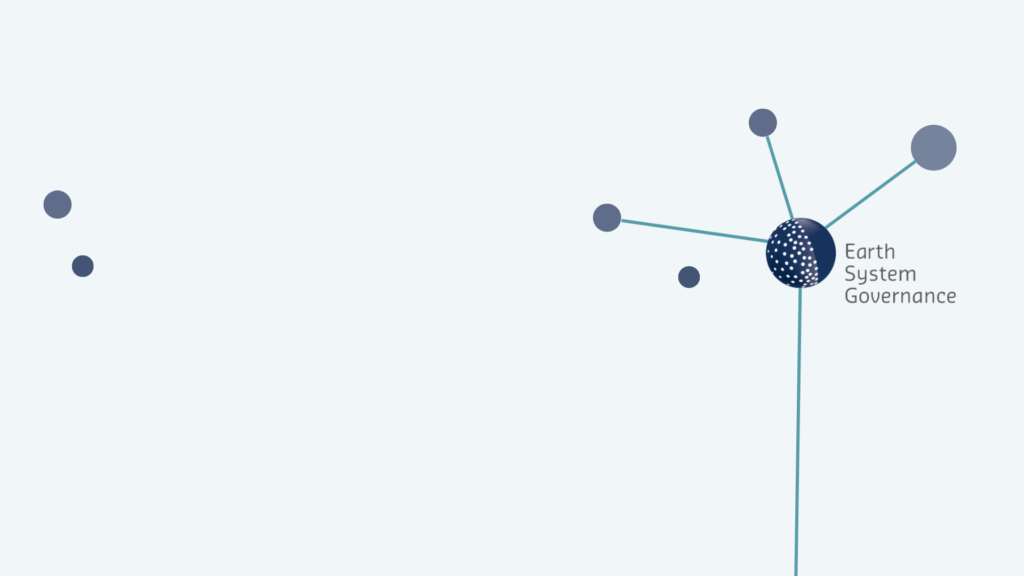Nairobi, 7-9 December 2016
Key Dates
Deadline for paper abstracts (extended): 28 March 2016
Notification of acceptance: 30 April 2016
Final registration deadline: 1 November 2016
Full papers due: 15 November 2016
Conference dates: 7-9 December 2016
Conference Theme
We invite you to the 2016 Conference on Earth System Governance, which will address the overarching theme of ‘Confronting Complexity and Inequality’. This conference – the seventh in our conference series – will take place in Nairobi, the ‘Green City in the Sun’ that is not only one of East Africa’s major centres but also home to the United Nations Environment Programme and a number of leading public and non-state organisations in the field of sustainable development.
In this central hub of global environmental governance, the 2016 Earth System Governance conference will focus on the persistent question of how we can manage the increasing complexity of institutions, actors, interests and discourses in a just and effective manner. In analysing this central question, we will place special emphasis on global and national inequalities, for instance by analysing local inequalities in sustainable development policies or by asking to what extent traditional divisions between North and South are still relevant in earth system governance or whether new divides, and goal conflicts, exist that deserve our attention.
At the 2016 Nairobi Conference on Earth System Governance, we will also place particular emphasis on Africa, and invite papers that address the continent’s potential for, but also the challenges to, sustainable development. Finally, eight years into the Earth System Governance Project we now invite all members of our community to join in identifying the new and exciting directions that could guide earth system governance research in the next decade.
For all of these questions, the Nairobi Conference has been designed to provide a lively forum to hundreds of scholars for joint discussions, the exchange of new insights, and the examination of the core ideas that underlie earth system governance and global sustainability.
Conference Streams
The conference will be organised into four conference streams, although we also welcome proposals in any other major area of earth system governance research:
Stream 1: Complexity in Earth System Governance
It is widely accepted that earth system governance today is marked, across all levels, by a growing diversity of actors, institutions, interests, knowledge claims and discourses. All reflect the genuine complexity of planetary stewardship that interacts with a series of other fields and governance challenges, such as trade, development, health, and security. These multiple complexities have both positive and negative implications for the legitimacy and effectiveness of governance.
Against this backdrop, we welcome paper submissions on questions such as:
- How do the various complexities differ across issue areas, and across different levels of governance?
- How are they caused and interrelated?
- What are their implications for questions of coordination, justice and the effectiveness of earth system governance?
- To what extent should we manage such complexities, and to what extent are they inevitable or desirable?
- Which innovative measures need to be taken to facilitate just and effective sustainability policies in a complex world?
Stream 2: Inequality in Earth System Governance
The 2016 Earth System Governance Conference will focus on scientific research and debates on persistent inequalities at both global and national levels. Inequality has many dimensions that range from procedural and democratic aspects of legitimacy, transparency and accountability to consequences like distributive injustice or imbalances of environmental, social and economic outcomes. Both environmental problems and environmental policies, e.g., the increasing number of incentive mechanisms, may alter patterns of equality – often along new types of fault-lines that blur traditional divides. At the same time, a never-ending stream of terminologies – ranging from sustainable development to green economy, green growth, green transformation, a ‘green new deal’ or low carbon development – keeps suggesting that social, ecological and economic goals can be achieved in parallel – a claim that may warrant special scrutiny at the 2016 Conference.
Under this general topic we explicitly welcome submissions that address questions such as:
- How does earth system governance at local or global levels change the playing field – who loses, who wins from environmental problems and from the resulting response measures?
- What does this mean for older divides or differentiations for instance between North and South, public and private, and local and global?
- Within our own research communities, which inequalities and imbalances do we experience? Which disciplines and methods are dominant in the science-policy nexus?
- To what extent are goal conflicts manageable – or are they unavoidable?
Stream 3: Africa and Earth System Governance
Africa is seen by many observers as the key emerging market of the next thirty years, with accelerating growth rates that may help lift millions of people out of poverty. This dynamic implies exciting opportunities for environmental governance with growing ecological awareness, successful governance at the grassroots level, better options for protecting the continent’s unique biodiversity, and a large potential for green technology development and implementation. On the other hand, there are challenges that call for joint efforts within and beyond Africa. The world’s warmest continent currently exhibits deforestation rates that are twice the average of the rest of the world; and the productivity of more than half of agricultural land has declined due to land degradation and desertification.
For this conference stream, we welcome especially papers that examine this dynamic, related to questions such as:
- How have African environmental policies emerged and changed for specific sub-regions and issue areas in recent years?
- Which different traditions and dominant discourses in dealing with the environment and sustainability have evolved?
- Which policy measures have proven to be effective in mitigating, or adapting to, problems like climate change, biodiversity loss and over-exploitation of nature?
- Which mixes of development and environmental policies, and of public and private engagement, have been employed – and what are their trade-offs?
- What are the justice dimensions of environmental and sustainability governance in Africa today: both within countries, but also for responsibilities of the global North with regard to resource exploitation, environmental stress, and social inequalities?
- Will all African stakeholders ultimately benefit from green economy or green growth, or will inequalities persist or even increase?
Stream 4: New Directions in Earth System Governance Research
It goes without saying that earth system governance research is a highly changeable issue. Over the eight years of the existence of the Earth System Governance Project, numerous new issues have moved closer to the centre of attention, such as environmental migration, health considerations, or the management of pesticides or heavy metals, to name but a few. In the same vein, new theoretical and methodological lenses have come to the forefront, for instance discourse or network analysis, transdisciplinary research, and the role of other forms of knowledge beyond the mainstream scientific discourse. Finally, at the core of the Earth System Governance Project, new partnerships and collaborations have arisen across countries and disciplines.
In sum, we see it as high time to scope all these new and exciting directions that will take earth system governance research to the next level and redefine our network for the coming decade.
We invite submissions on questions such as:
- What are new thematic challenges of earth system governance research at local, national, regional and global levels? What are such new challenges under the Project’s current five analytical themes (Architecture, Agency, Adaptiveness, Accountability, Access and Allocation)? What (new) challenges are important beyond the current framework?
- Which innovative theoretical and methodical approaches can help us to address these and other challenges more accurately?
- How do we envision the process of earth system governance, from local to global levels, and the research thereof in the next decade?
- How can we reposition the Earth System Governance research community to respond in an effective and sustained manner to all new challenges, including new policy developments such as the Sustainable Development Goals?
Types of Proposals
1. Individual papers
We invite submissions of abstracts of 400 words (or less) that address either the main conference theme; one or more of the four conference streams; or any other topic that is relevant to the Earth System Governance Project. Submissions are welcome through our conference website.
All abstracts will be anonymised and evaluated in double-blind peer-review by generally five members of the conference review panel.
2. Full panels
In addition, we invite Panel proposals that address the main conference theme; one or more of the four conference streams; or any other topic relevant to the Earth System Governance Project. Submissions can also be made through the conference website.
Panel proposals must include a description of the panel (300 words or less), 4-5 abstracts (each 400 words or less), as well as a chair and a discussant. Please note that all paper abstracts will be evaluated individually in the general double-blind peer-review of the conference, with the possible outcome that only some papers submitted for a panel might eventually be accepted. Only panels with three or more accepted papers will be included in the programme.
3. Innovative sessions
We also welcome proposals for non-traditional sessions, such as roundtables (which may include policy-makers, academics, or representatives of non-governmental organisations), policy games, book launches, and book clubs (that may discuss recently published academic works in the field). All non-traditional sessions can be proposed directly to the conference organisers by e-mail: ipo@earthsystemgovernance.org. Proposals should include a description of the session (1 page) and a list of participants. Proposals will be reviewed by the conference organisers and members of the local advisory committee.
Additional Information
Please note that while there is no limit on the number of submissions, individuals will only be permitted to present, at a maximum, 2 papers.
The organisers are undertaking all efforts to secure travel support for participants who are based at institutions in developing countries. To the extent that travel funds are available, they will be disbursed on merit basis according to the relative ranking of the abstract. Acceptance of a paper for presentation does not guarantee travel support.
Additional information and answers to frequently asked questions can be found on the conference website.


